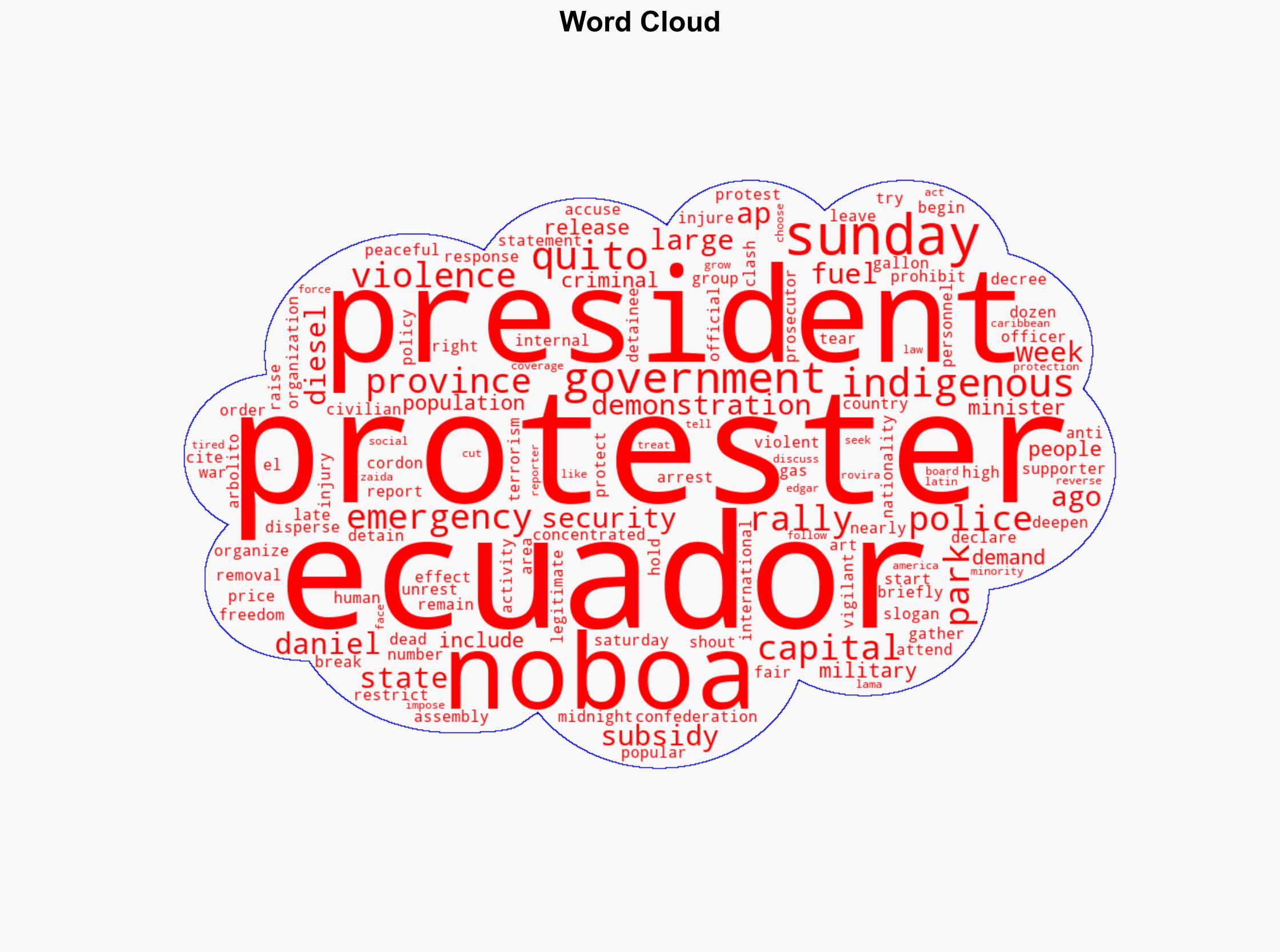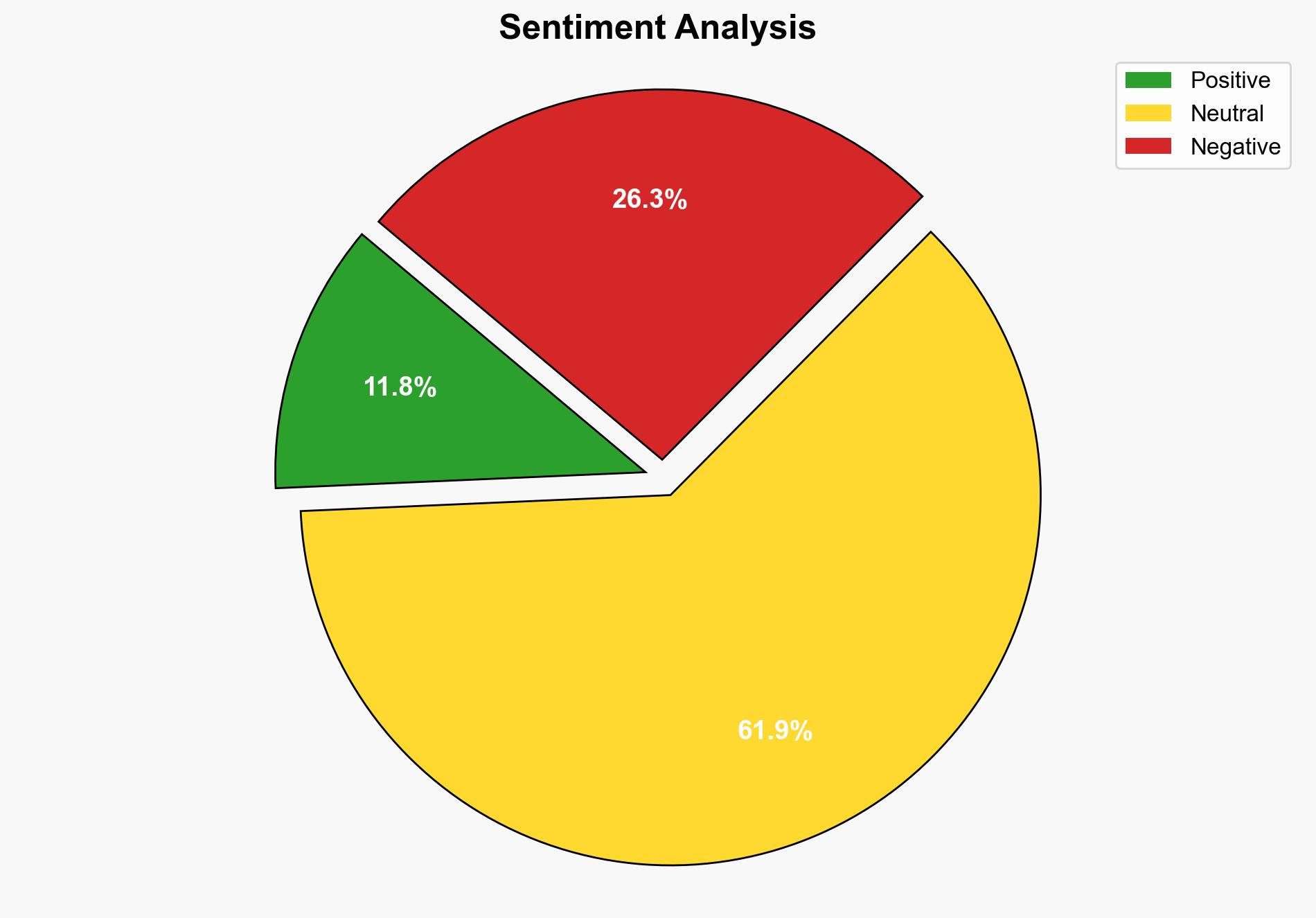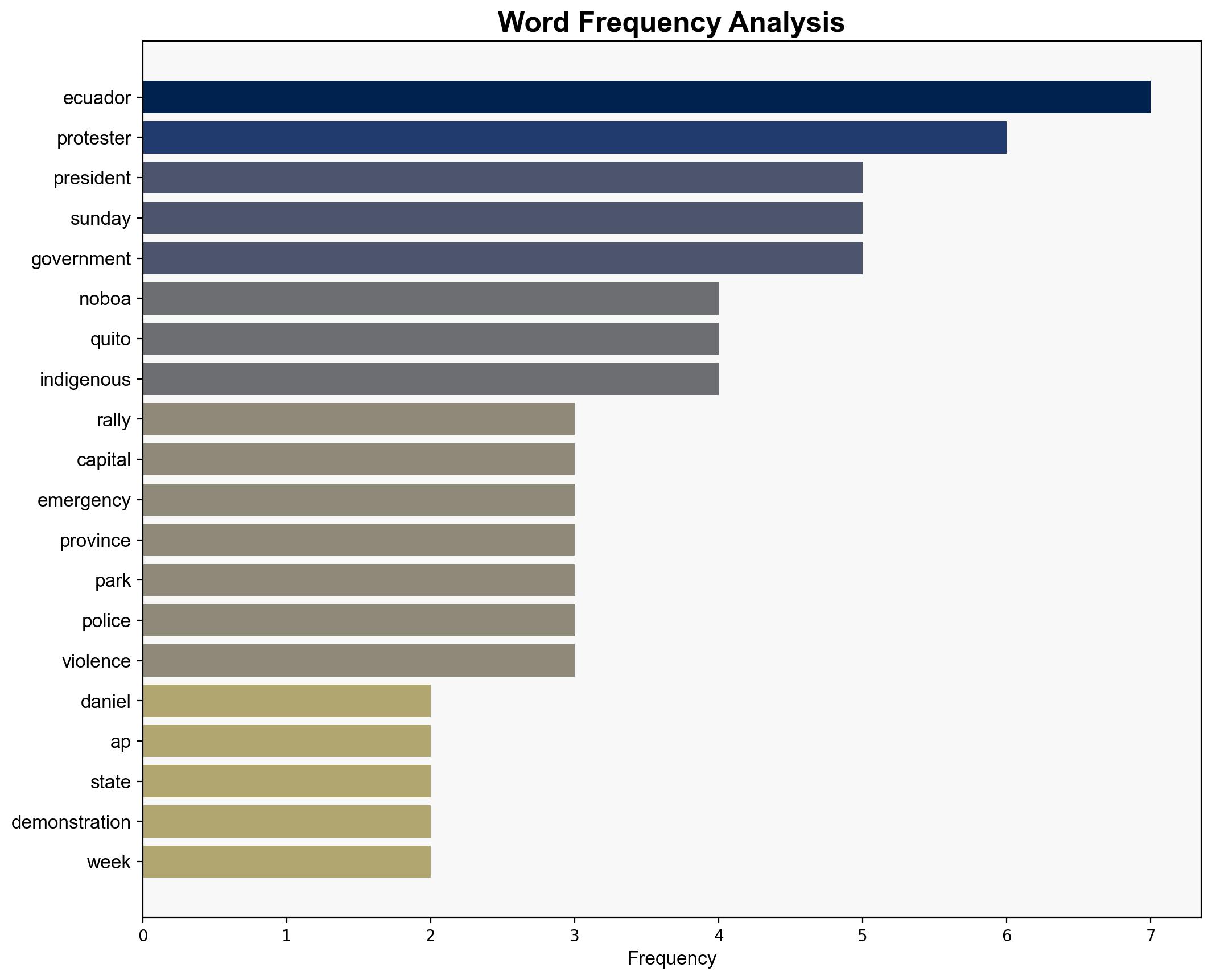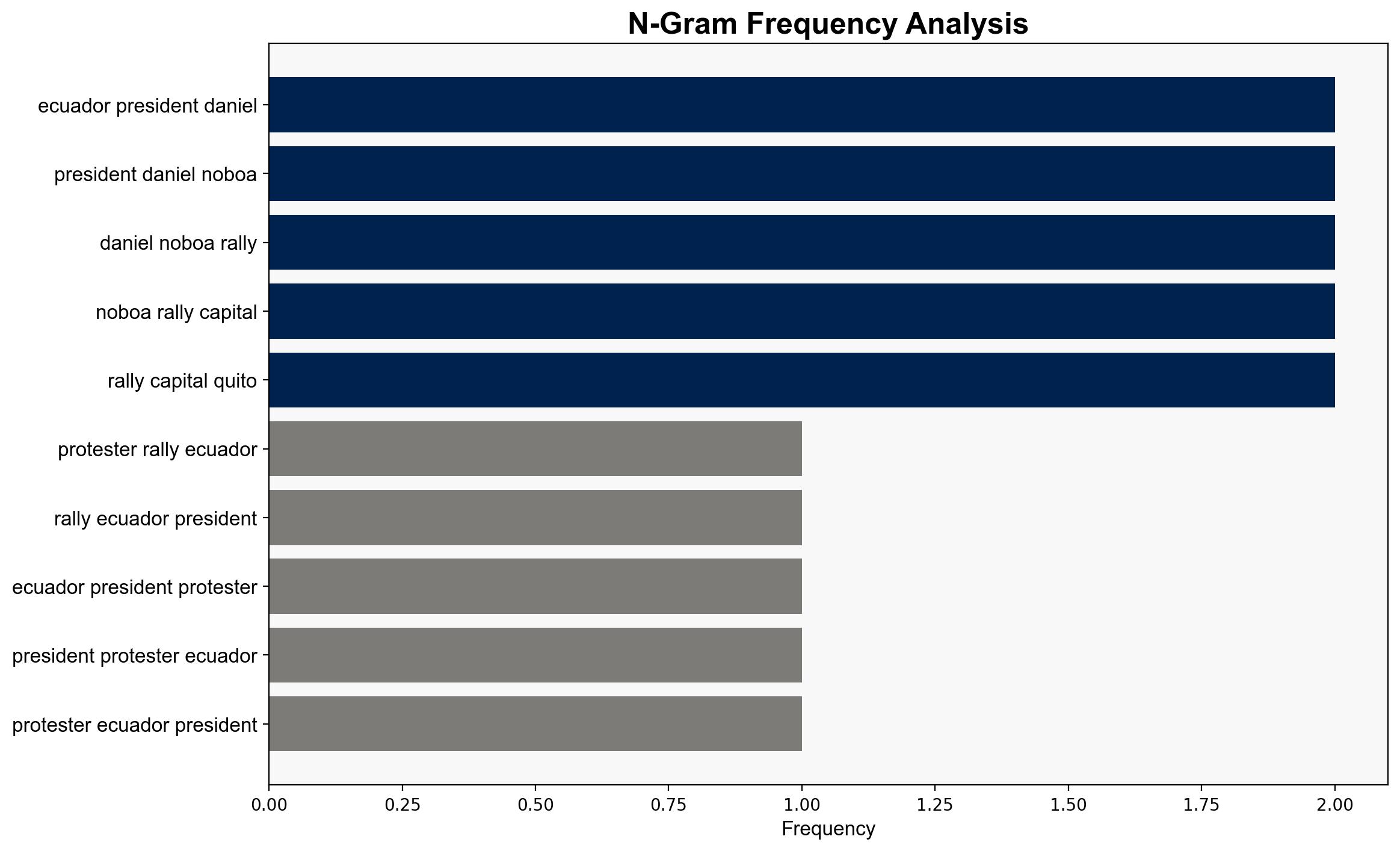Protesters rally for and against Ecuador’s president as emergency takes effect in 10 provinces – ABC News
Published on: 2025-10-06
Intelligence Report: Protesters rally for and against Ecuador’s president as emergency takes effect in 10 provinces – ABC News
1. BLUF (Bottom Line Up Front)
The situation in Ecuador is marked by significant civil unrest, with protests both supporting and opposing President Daniel Noboa. The most supported hypothesis is that the unrest is primarily driven by economic grievances, particularly the removal of fuel subsidies, which disproportionately affects indigenous communities. Confidence level is moderate due to the complexity of socio-political dynamics. Recommended action includes diplomatic engagement with indigenous leaders and monitoring potential escalation.
2. Competing Hypotheses
1. **Economic Grievance Hypothesis**: The protests are primarily driven by economic factors, specifically the removal of fuel subsidies and the resultant increase in diesel prices, which has disproportionately impacted indigenous communities.
2. **Political Manipulation Hypothesis**: The protests are being manipulated by political actors seeking to destabilize President Noboa’s government, using economic grievances as a catalyst to mobilize support and challenge the administration.
Using ACH 2.0, the Economic Grievance Hypothesis is better supported by the evidence, given the focus on fuel subsidies and the involvement of large indigenous groups, which historically mobilize around economic issues.
3. Key Assumptions and Red Flags
– **Assumptions**: It is assumed that the removal of fuel subsidies is the primary driver of unrest. Another assumption is that indigenous groups are acting independently without external political manipulation.
– **Red Flags**: The rapid escalation to a state of emergency suggests potential underestimation of the protest’s scale or external influences. The involvement of international human rights organizations indicates potential for broader international scrutiny.
– **Missing Data**: Lack of detailed information on the political affiliations of protest organizers and the specific demands of government supporters.
4. Implications and Strategic Risks
The unrest poses risks of economic destabilization and potential escalation into violent conflict, particularly if the government continues to use forceful measures. There is a risk of international condemnation if human rights abuses are reported. The situation could also inspire similar movements in neighboring countries, affecting regional stability.
5. Recommendations and Outlook
- Engage in dialogue with indigenous leaders to address economic grievances and explore potential compromises on fuel subsidies.
- Monitor for signs of political manipulation or external influence to preempt further destabilization.
- Scenario Projections:
- **Best Case**: Successful negotiations lead to de-escalation and restoration of order.
- **Worst Case**: Escalation into widespread violence and international intervention.
- **Most Likely**: Continued protests with sporadic violence, leading to gradual concessions by the government.
6. Key Individuals and Entities
– Daniel Noboa
– Edgar Lama
– Zaida Rovira
– Confederation of Indigenous Nationalities of Ecuador
7. Thematic Tags
national security threats, economic instability, civil unrest, regional focus




